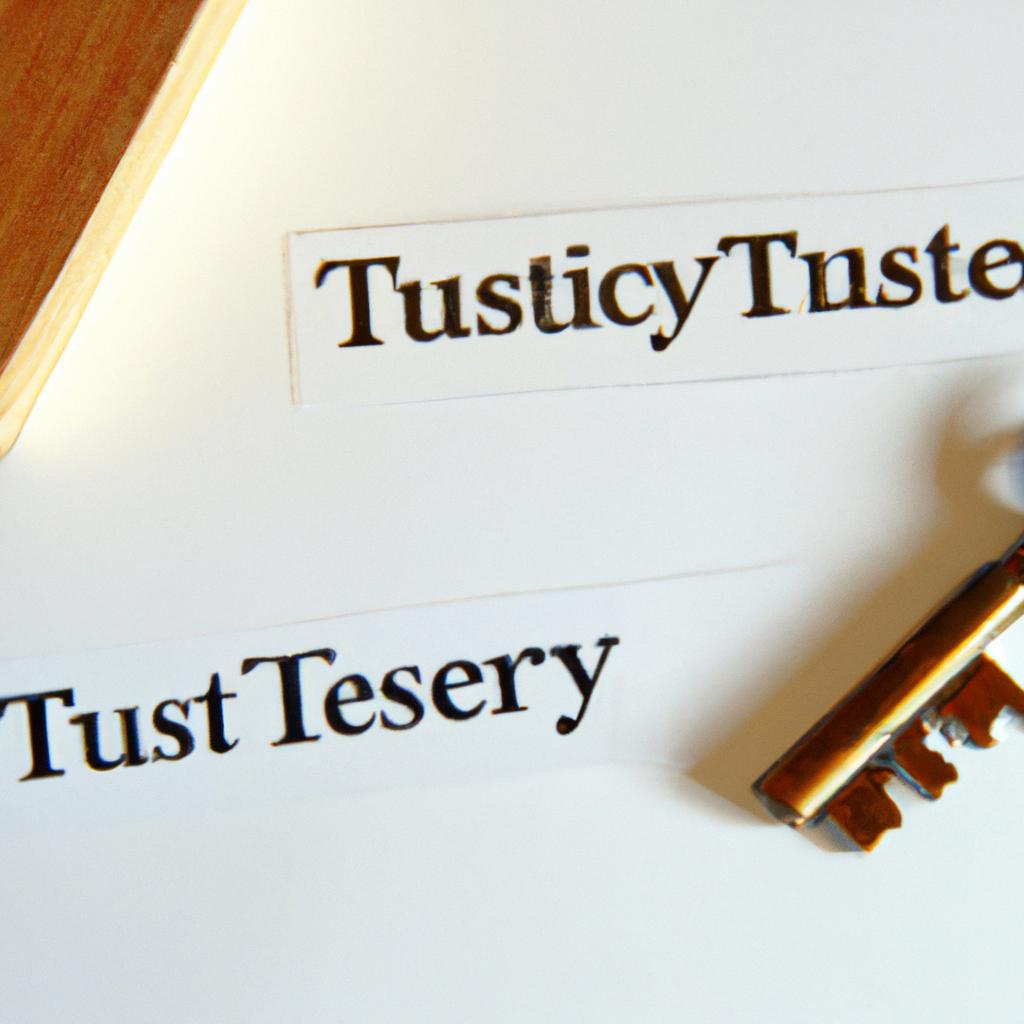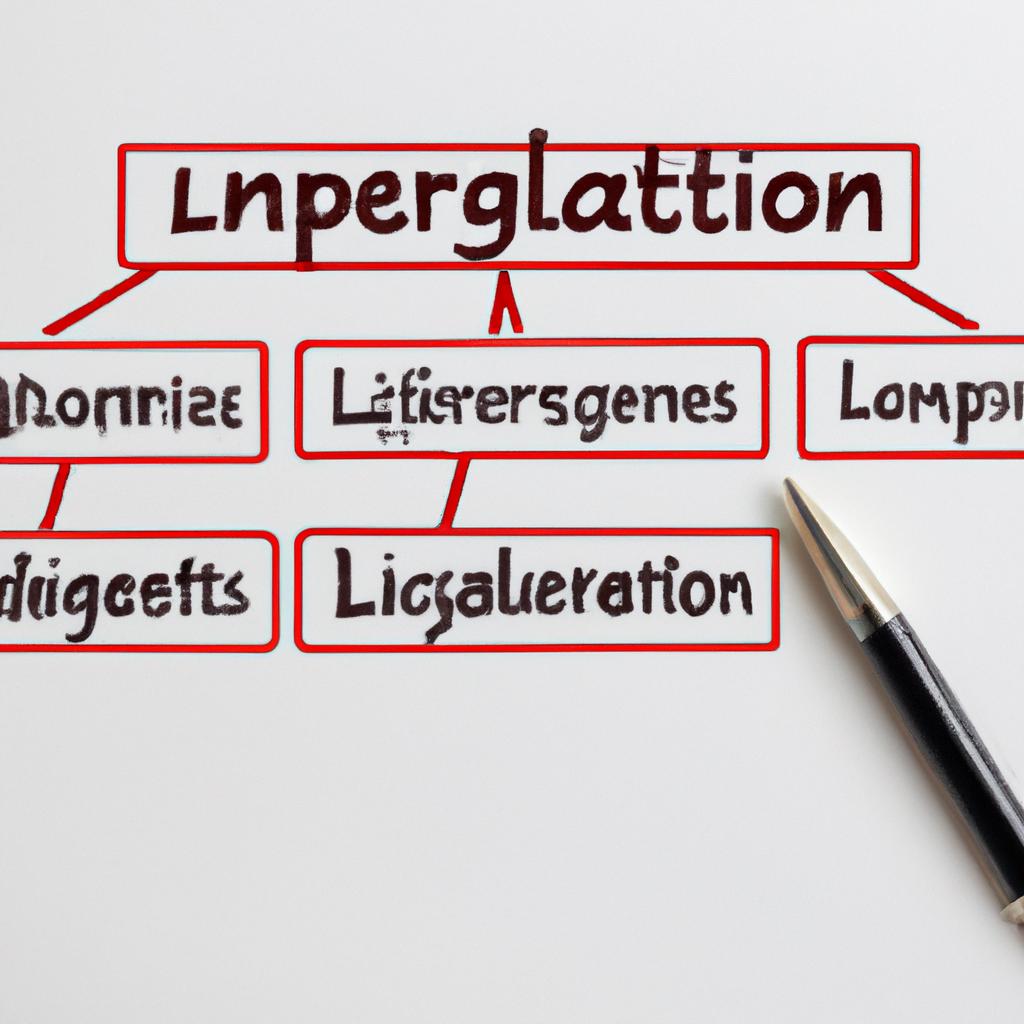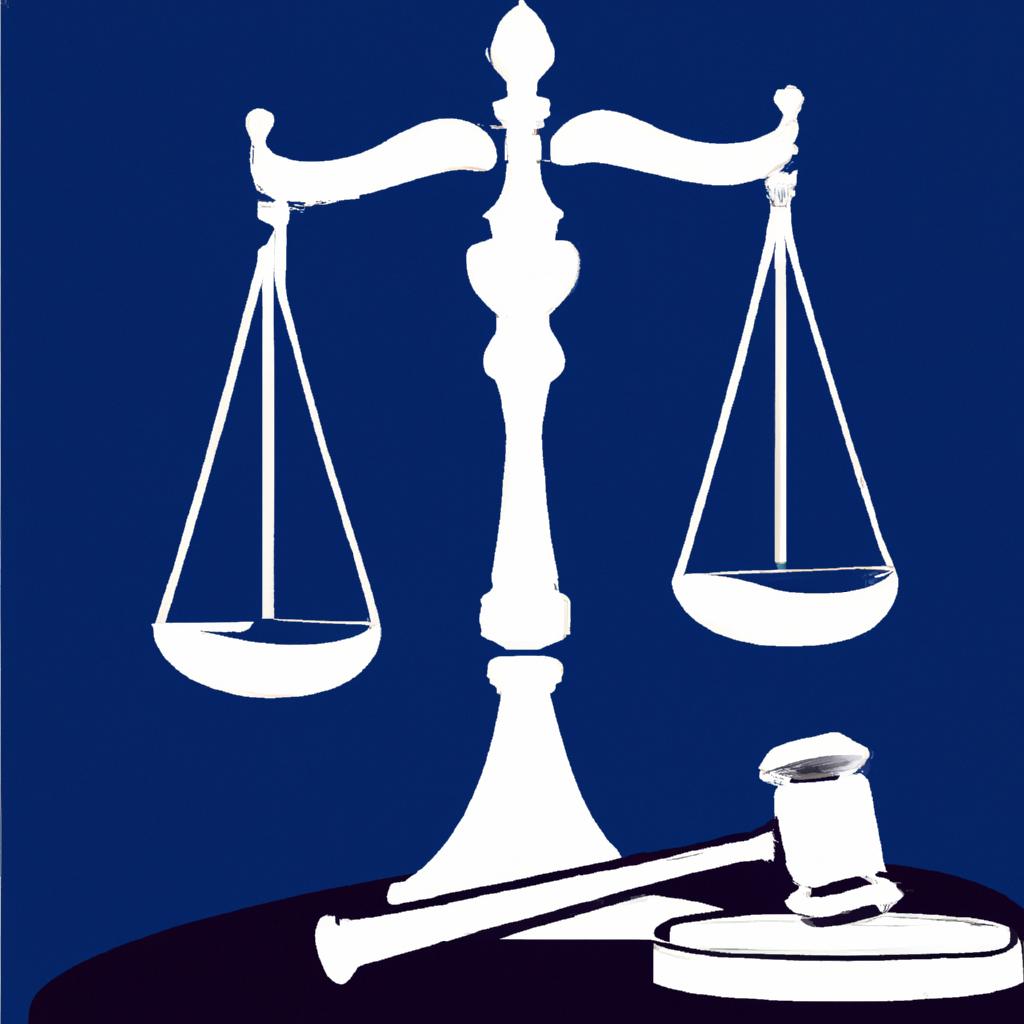In the intricate world of estate planning, two commonly used terms that can often cause confusion are “trust” and “estate.” While both play crucial roles in managing and distributing assets, they are distinct legal entities with unique purposes and mechanisms. Understanding the nuances between a trust and an estate is essential for individuals seeking to safeguard their assets and ensure their wishes are carried out efficiently. In this article, we will delve into the key differences between a trust and an estate, shedding light on their respective functions and how they can work in tandem to secure one’s financial legacy. As seasoned attorneys at Morgan Legal Group in New York City, specializing in estate planning, Wills, and trusts, we are dedicated to providing clarity and guidance on these intricate matters.
Key Differences Between Trusts and Estates
When it comes to estate planning, it is crucial to understand the . While both serve as vehicles for managing assets and passing them on to beneficiaries, there are distinct characteristics that set them apart.
One of the main differences between trusts and estates is the manner in which they are established. A trust is created during the lifetime of the trustor and involves transferring assets to a trustee for the benefit of beneficiaries. On the other hand, an estate is formed upon the death of an individual and involves the distribution of assets according to a will or state laws. Additionally, trusts offer more privacy and flexibility compared to estates, as they are not subject to probate court proceedings.

Understanding the Legal Distinctions
When it comes to managing assets and ensuring their distribution according to your wishes, it is important to understand the legal distinctions between a trust and an estate. While both serve as vehicles for asset protection and distribution, there are key differences that can impact how your assets are managed both during your lifetime and after your passing.
One major difference between a trust and an estate is the timing of asset distribution. A trust allows for assets to be distributed to beneficiaries during your lifetime or after your passing, while an estate typically distributes assets only after your death. Additionally, trusts can provide more control over how and when assets are distributed, while estates are subject to probate court proceedings and may face delays in distribution. It is important to carefully consider your goals and needs when deciding between a trust and an estate plan.

Implications for Estate Planning Strategies
When it comes to estate planning, it is crucial to understand the difference between a trust and an estate. While both serve as tools for distributing assets upon death, they function in distinct ways and can have varying implications for your overall estate planning strategy.
Trust:
- Allows for assets to be held and managed by a trustee on behalf of the beneficiaries.
- Avoids the probate process, ensuring a more seamless transfer of assets.
- Can provide privacy as the trust document is not public record.
Estate:
- Consists of all the assets owned by an individual at the time of their death.
- Must go through the probate process, which can be time-consuming and costly.
- May be subject to estate taxes depending on the value of the assets.

Recommendations for Structuring Your Assets
When considering how to structure your assets, it’s important to understand the key differences between a trust and an estate. A trust is a legal entity that holds assets on behalf of beneficiaries, managed by a trustee according to the terms set forth in the trust document. This allows for greater control and privacy, as assets held in a trust typically avoid probate. On the other hand, an estate refers to all of a person’s assets, liabilities, and obligations at the time of their death, which are distributed according to their will or state law.
When deciding between a trust and an estate, it’s essential to consider your specific financial goals and circumstances. A trust can provide benefits such as avoiding probate, reducing estate taxes, and protecting assets from creditors. However, establishing and maintaining a trust can be more complex and expensive than simply planning your estate through a will. Consulting with an experienced estate planning attorney, like the professionals at Morgan Legal Group in New York City, can help you navigate these options and create a comprehensive plan that meets your needs.
Q&A
Q: What is the main difference between a trust and an estate?
A: A trust is a legal arrangement in which a trustee holds legal title to property for the benefit of another person, while an estate refers to all of a person’s assets, liabilities, and responsibilities at the time of their death.
Q: How do trusts and estates differ in terms of management?
A: Trusts are managed by a trustee who is responsible for overseeing the assets held in the trust and ensuring they are distributed according to the terms of the trust agreement. In contrast, estates are typically managed by an executor or administrator appointed by the court to handle the deceased person’s assets and settle their debts.
Q: Are there any tax implications for trusts and estates?
A: Yes, there are differences in tax treatment for trusts and estates. Trusts are generally subject to income tax on any income they generate, while estates may be subject to estate tax on the value of the assets they hold.
Q: How do trusts and estates differ in terms of control?
A: In a trust, the grantor can specify how they want their assets to be managed and distributed after their death, giving them more control over the process. In an estate, the assets are typically distributed according to state law if there is no will or estate plan in place, which may not align with the deceased person’s wishes.
In Conclusion
In conclusion, understanding the difference between a trust and an estate is essential for anyone looking to plan their financial future. While both serve important roles in asset management and distribution, it’s important to consult with a trusted professional to determine which option is best suited for your individual needs. By taking the time to educate yourself on the nuances of these two financial vehicles, you can ensure that your assets are protected and your wishes are carried out as you intend. So whether you choose a trust, an estate, or a combination of both, remember that careful planning today can pave the way for a secure tomorrow.
 When it comes to planning for the future, many people turn to legal tools such as trusts and estates to protect their assets and provide for their loved ones after their passing. While both a trust and an estate can be useful tools for managing and distributing assets, they serve different purposes and have distinct characteristics. In this article, we will explore the differences between a trust and an estate and help you determine which may be the best option for your specific needs.
When it comes to planning for the future, many people turn to legal tools such as trusts and estates to protect their assets and provide for their loved ones after their passing. While both a trust and an estate can be useful tools for managing and distributing assets, they serve different purposes and have distinct characteristics. In this article, we will explore the differences between a trust and an estate and help you determine which may be the best option for your specific needs.
What is a trust?
A trust is a legal arrangement in which a third party, known as a trustee, holds and manages a person’s assets for the benefit of another person or group of people, known as beneficiaries. The creator of the trust, also known as the grantor or settlor, determines the terms and conditions of the trust and appoints a trustee to manage and distribute the assets according to their wishes.
Types of trusts
There are various types of trusts that serve different purposes. Some common types of trusts include:
1. Living trust – Also known as a revocable trust, this type of trust allows a person to manage their assets while they are alive and designate where those assets will go after their passing.
2. Testamentary trust – This type of trust is created through a will and only goes into effect after the grantor’s death. It can be used to manage assets for minor children or beneficiaries with special needs.
3. Irrevocable trust – This type of trust cannot be amended or revoked once it is created, and the grantor gives up control of the assets placed into it. It is often used for tax planning and asset protection purposes.
4. Charitable trust – This type of trust allows a person to donate assets to a charity while still receiving income from those assets during their lifetime.
Benefits of trusts
1. Control over assets – By creating a trust, the grantor maintains control over how their assets are managed and distributed, even after their death.
2. Avoiding probate – Assets held in a trust do not go through the probate process, meaning they can be distributed more quickly and with less cost and public scrutiny.
3. Protection of assets – A trust provides a layer of protection for the grantor’s assets against creditors and potential legal disputes.
The difference between a trust and an estate
A trust and an estate can often be confused as they are both used for managing assets after a person’s passing. However, there are some key differences between the two.
1. When they take effect – As mentioned earlier, a trust can take effect during the grantor’s lifetime, while an estate only takes effect after the grantor’s passing.
2. Types of assets – A trust can hold various types of assets, such as cash, stocks, real estate, and even artwork, while an estate typically only holds assets owned by the deceased individual.
3. Distribution of assets – In a trust, the assets are managed and distributed according to the trust’s terms and the grantor’s wishes. In an estate, the assets are typically distributed according to the laws of intestacy if there is no will or trust in place.
4. Privacy – Trusts offer a higher level of privacy as they do not go through the probate process like an estate, which is a public record.
Which one is right for you?
Deciding between a trust and an estate can be a daunting task. Factors to consider include the size of your assets and your specific goals for their management and distribution. For instance, if you want to place restrictions on how your assets can be used by your beneficiaries, a trust may be the better option. On the other hand, if you want a simpler approach and are comfortable with your assets being distributed according to state laws, an estate may be the right choice.
It is essential to seek the advice of a qualified estate planning attorney to determine which option is best for your unique situation.
Practical tips
1. Regularly review and update your trust documents to ensure they reflect your current wishes.
2. Beware of scams and fraudulent trusts from non-licensed individuals claiming to offer estate planning services.
Case study
John, a wealthy businessman, has a net worth of $5 million. He wants to ensure his assets are distributed to his three children equally after his passing. John decides to create a revocable trust to manage and distribute his assets according to his wishes. However, John’s advisor also suggests he create a pour-over will, which would transfer any assets that are not explicitly designated in the trust into the trust after his passing. This way, John can ensure all his assets are handled according to the trust’s terms and avoid the probate process.
Firsthand experience
“I was hesitant to create a trust as I thought it was only for the super-rich. However, my attorney explained the benefits of having one, and it was a game-changer. I now have peace of mind knowing that my assets will be managed and distributed according to my wishes.” – Mary, trust creator and beneficiary.
In conclusion, trusts and estates have unique characteristics and serve different purposes. Researching and understanding the differences between the two can help you make an informed decision on which may be the best option for your needs. It is crucial to regularly review and update your trust documents to ensure they reflect your current goals and to seek professional guidance from an estate planning attorney to create an estate plan that meets your specific needs.

